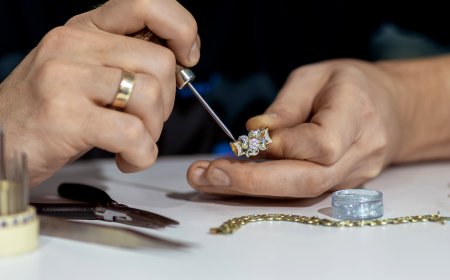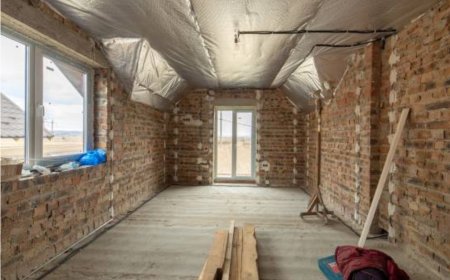Top 10 Artisanal Bakeries in London
Introduction London’s bread scene has undergone a quiet revolution over the past two decades. No longer dominated by mass-produced loaves with preservatives and additives, the city now boasts a thriving network of artisanal bakeries that honor centuries-old techniques. These are not merely shops selling bread—they are sanctuaries of craftsmanship, where time, patience, and respect for ingredients
Introduction
London’s bread scene has undergone a quiet revolution over the past two decades. No longer dominated by mass-produced loaves with preservatives and additives, the city now boasts a thriving network of artisanal bakeries that honor centuries-old techniques. These are not merely shops selling bread—they are sanctuaries of craftsmanship, where time, patience, and respect for ingredients define every crust and crumb. But in a market flooded with claims of “handmade” and “organic,” how do you know which bakeries truly deliver? Trust is no longer a luxury—it’s a necessity.
This guide is built on years of observation, firsthand visits, and deep engagement with London’s baking community. We’ve excluded establishments that rely on marketing buzz alone. Instead, we’ve prioritized bakeries with consistent quality, transparent sourcing, skilled bakers, and a demonstrable commitment to the craft. These are the places where locals return week after week, where the scent of sourdough lingers on morning streets, and where bread is treated not as a commodity, but as a cultural artifact.
What follows is a curated list of the top 10 artisanal bakeries in London you can trust—each selected for authenticity, excellence, and enduring reputation. Whether you seek a crusty baguette for your lunch, a rich brioche for Sunday brunch, or a loaf that tells the story of grain and terroir, these ten have earned your confidence.
Why Trust Matters
In an era of fast food, instant gratification, and algorithm-driven consumption, trust in food has become a rare and valuable currency. Nowhere is this more true than in artisanal baking. Unlike industrial bakeries that rely on dough conditioners, rapid fermentation, and standardized recipes, true artisanal bread requires time—often 24 to 72 hours—to develop flavor, texture, and digestibility. It requires skilled hands, deep knowledge of fermentation, and an unwavering commitment to quality.
Many businesses in London now label themselves “artisanal” to capitalize on growing consumer interest in natural foods. But the term is unregulated. A bakery can call itself artisanal even if it uses frozen dough, commercial yeast, or pre-mixed flour blends. Without trust, consumers risk paying premium prices for products that offer none of the benefits associated with true craftsmanship.
Trust in a bakery is earned through transparency. It’s found in the visible sourdough starter cultures on display, in the handwritten chalkboards listing grain origins, in bakers who can explain the difference between heritage wheat and conventional varieties, and in the absence of plastic-wrapped loaves stacked beside a microwave. It’s in the consistency of flavor over time—the same loaf tasting just as good in January as it did in July.
Choosing a trusted bakery isn’t just about taste. It’s about supporting ethical food systems, reducing environmental impact through local sourcing, and preserving culinary heritage. When you buy from a trusted artisanal bakery, you’re investing in a slower, more thoughtful way of eating—one that values the land, the labor, and the legacy behind every loaf.
This guide exists to help you navigate the noise. We’ve visited, tasted, and compared. We’ve spoken to bakers, farmers, and regular customers. What follows are the ten bakeries in London that have earned—and consistently maintained—your trust.
Top 10 Artisanal Bakeries in London You Can Trust
1. The Flour Station
Nestled in the heart of Peckham, The Flour Station has become a benchmark for modern British sourdough. Founded by former chef and grain enthusiast Tom Hargreaves, the bakery sources its flour exclusively from small-scale UK mills, including Warminster and Cranshaws. Their signature loaf, the “Peckham Rye,” is a 72-hour fermented sourdough made with organic rye and spelt, offering a deep, earthy tang balanced by a tender, open crumb.
What sets The Flour Station apart is its commitment to traceability. Each loaf comes with a small card detailing the farm where the wheat was grown, the milling date, and the baker’s initials. Their bakery is open daily from 7 a.m., and the queue often stretches down the street—proof of their reputation. They also offer weekly baking workshops, where participants learn to nurture their own starters and shape dough by hand.
Regulars swear by their rye and oat loaf, perfect for avocado toast or simply buttered and eaten warm. No preservatives. No shortcuts. Just grain, water, salt, and time.
2. Bread Ahead
Founded in 2012 in Borough Market, Bread Ahead was one of the first London bakeries to bring the French boulangerie model to the UK with unwavering precision. Their cinnamon buns, now iconic, are made with French butter, slow-fermented dough, and a caramelized sugar glaze that shatters delicately on the first bite. But their true mastery lies in their sourdough boules and pain de campagne.
Bread Ahead sources its organic flour from the UK’s oldest flour mill, Hodmedod’s, and uses a 48-hour fermentation cycle for all their bread. Their bakers train under French master bakers, and the bakery operates with a strict no-machine policy for shaping. Even their baguettes are proofed overnight in wooden bannetons.
They also operate a renowned baking school, where students learn the science behind autolyse, lamination, and steam baking. Their bakery in Royal College Street offers a minimalist, airy space where the scent of baking bread is the only decoration. Trust here is built on consistency, education, and a refusal to compromise on technique.
3. Maltby Street Bakery
Located in the vibrant Maltby Street Market, this bakery is the brainchild of Dan Lepard, one of the UK’s most respected baking authors and educators. Maltby Street Bakery is a masterclass in simplicity: three ingredients, slow fermentation, and the finest organic flours. Their sourdough loaves are baked in a wood-fired oven, giving them a smoky depth and a crust that crackles like autumn leaves underfoot.
Dan’s philosophy is rooted in the belief that bread should taste like grain—not yeast, not sugar, not salt alone. He works directly with farmers in Kent and Sussex to source heritage wheat varieties like Red Lammas and Rivet. Each loaf is stamped with the wheat variety and the date of harvest.
They also produce a seasonal “Wild Yeast” loaf, made with foraged blackberry leaves and wild rose petals to cultivate a unique local culture. Their oat and barley loaf, baked only on weekends, sells out within hours. Maltby Street Bakery doesn’t advertise. Its reputation is built on word of mouth, repeat customers, and the quiet excellence of every loaf.
4. White Rabbit Bakery
With two locations in East London (Hackney and Shoreditch), White Rabbit Bakery has quietly become a favorite among chefs and food writers. Their bread is deeply influenced by Japanese fermentation techniques, particularly the use of koji and natural rice starters alongside traditional sourdough. This fusion results in loaves with an unusual sweetness, soft texture, and complex umami notes.
They are one of the few bakeries in London to use stone-ground Japanese rice flour in their brioche, creating a tender, slightly sticky crumb that pairs beautifully with miso butter or sweet red bean paste. Their “Koji Sourdough” is a cult favorite—fermented for 80 hours, it has a mild acidity and a glossy, almost translucent crust.
White Rabbit’s commitment to sustainability is equally impressive. They use compostable packaging, recycle all spent grain into animal feed, and partner with urban farms to grow herbs and vegetables for their savory pastries. Their bakers are trained in both French and Japanese methods, and the bakery maintains a zero-waste policy in the kitchen.
5. The Bread Project
Based in Brixton, The Bread Project is more than a bakery—it’s a social enterprise. Founded by a group of trained bakers and community advocates, they employ and train individuals from marginalized backgrounds, offering full-time positions with benefits and apprenticeships in artisanal baking. Every loaf they sell helps fund their training programs.
Despite their mission-driven focus, their bread stands on equal footing with any commercial artisanal bakery in the city. Their “Brixton Loaf” is a 70% whole grain sourdough made with organic spelt, buckwheat, and barley, baked in a coal-fired oven. The crust is thick and caramelized; the interior is moist, nutty, and deeply satisfying.
They source their grains from organic cooperatives in Somerset and Lincolnshire, and their starter culture is over 12 years old—passed down through generations of bakers within the program. Their Sunday “Community Loaf” is sold at cost to local residents, ensuring access to quality bread regardless of income.
Trust here is not just about the bread—it’s about the integrity of the people behind it. The Bread Project proves that excellence and ethics are not mutually exclusive.
6. Gail’s Bakery
Often mistaken for a chain due to its multiple locations, Gail’s remains one of the most trusted names in London’s artisanal scene. What distinguishes them from other “artisanal chains” is their unwavering commitment to small-batch production. Each bakery operates independently, with its own head baker, starter culture, and weekly grain rotation.
They use only organic, stone-ground flour and ferment their dough for a minimum of 24 hours. Their “Country Loaf” is a benchmark for British sourdough: crusty, tangy, and full of flavor. Their croissants, made with French butter and layered by hand, are consistently ranked among the best in the city.
Gail’s also runs a transparent supply chain. Their website lists every mill they source from, and each bakery posts the origin of their flour on a daily chalkboard. They’ve never used preservatives, and their pastries are free from artificial flavors. Their success lies in consistency without compromise—proving that scale and authenticity can coexist when values are prioritized.
7. The Grain Store
Located in a converted warehouse in Walthamstow, The Grain Store is a grain-to-loaf operation in the truest sense. They mill their own flour on-site using a 1920s stone mill, sourced from organic farms across East Anglia. This rare practice ensures maximum freshness and nutrient retention, as the flour is milled hours before baking.
Owner and miller Emma Higgs is a leading advocate for grain diversity. Her bakery offers over 15 different bread varieties made from grains like einkorn, emmer, and spelt—each with distinct flavor profiles and baking characteristics. Their “Einkorn Rye” is a revelation: nutty, slightly sweet, with a dense yet airy crumb that holds up to thick spreads.
They also host monthly “Grain Tastings,” where visitors can sample flours from different regions and learn how terroir affects flavor. Their bakery is open for walk-ins only—no online orders—and they close when the flour runs out, reinforcing their commitment to scarcity and quality over volume.
Trust at The Grain Store is built on transparency, education, and an almost reverent approach to the grain itself.
8. The Baker’s Table
Perched above a quiet street in Clapham, The Baker’s Table is a hidden gem known for its delicate, buttery pastries and masterfully shaped sourdough. Founded by a French-trained baker who spent years working in Lyon and Toulouse, the bakery specializes in traditional French techniques with a London twist.
Their pain au levain is a standout—fermented for 48 hours, shaped by hand, and baked in a steam-injected oven to achieve a glossy, blistered crust. Their brioche is made with free-range eggs and Normandy butter, resulting in a richness that lingers on the palate.
What sets them apart is their attention to detail: every dough is weighed and timed to the minute, every oven load is rotated for even heat, and every loaf is cooled on wooden racks for 12 hours before sale. They offer no packaged goods, no plastic, and no pre-made fillings. Everything is made daily, from scratch.
Regulars return for their “Sunday Pain de Mie”—a soft, square loaf perfect for sandwiches or French toast. It’s simple, but executed with near-perfect precision.
9. Bread & Butter
Based in Notting Hill, Bread & Butter is a bakery that defies categorization. It’s part bakery, part café, part community hub. Their bread is made using a blend of traditional European methods and British ingredients, resulting in loaves that are both familiar and surprising.
They use a naturally fermented starter cultivated from local apple blossoms—a unique technique that imparts a faint floral note to their sourdough. Their “Apple Blossom Loaf” has become a signature, with a tender crumb and a crust that sings when cracked. Their focaccia, topped with rosemary and sea salt from the Isle of Wight, is baked daily in small batches.
They also run a “Bread Swap” program, where customers can exchange empty loaves for fresh ones, reducing packaging waste. Their bakers are trained in both Italian and Scandinavian baking traditions, and their menu changes seasonally based on harvests and foraged ingredients.
Trust here comes from innovation grounded in respect—for ingredients, for technique, and for the community that supports them.
10. The Old Bakery
Founded in 1987 in the historic village of Dulwich, The Old Bakery is London’s oldest continuously operating artisanal bakery. It has survived changes in taste, trends, and ownership by adhering to one principle: bake the way your grandfather did.
The current head baker, Margaret Hargreaves (granddaughter of the founder), still uses the original sourdough starter, passed down through three generations. Their “Dulwich Loaf” is a 100% whole wheat sourdough, baked in a brick oven that’s been firing since the 1970s. The crust is thick and dark; the interior is dense, moist, and full of grain character.
They source their wheat from a single farm in Hampshire that has been in the same family for over 200 years. No flour is ever stored for more than 48 hours. They bake only 120 loaves a day—no more, no less. They do not deliver. They do not advertise. They do not accept online orders.
Customers come from across the city for this one thing: bread that tastes like history. The Old Bakery is not trendy. It is timeless. And in a world of fleeting trends, that is the highest form of trust.
Comparison Table
| Bakery | Fermentation Time | Flour Source | Signature Loaf | Unique Practice | Open to Public? |
|---|---|---|---|---|---|
| The Flour Station | 72 hours | UK organic mills | Peckham Rye | Grain traceability cards | Yes |
| Bread Ahead | 48 hours | Hodmedod’s | Pain de Campagne | French-trained bakers, no machines | Yes |
| Maltby Street Bakery | 72 hours | Kent & Sussex heritage wheat | Wild Yeast Loaf | Wood-fired oven, foraged cultures | Yes |
| White Rabbit Bakery | 80 hours | Japanese rice & UK grains | Koji Sourdough | Koji fermentation, zero-waste | Yes |
| The Bread Project | 48 hours | Somerset & Lincolnshire co-ops | Brixton Loaf | Social enterprise, training programs | Yes |
| Gail’s Bakery | 24–48 hours | Multiple UK organic mills | Country Loaf | Transparency in sourcing | Yes |
| The Grain Store | 48–72 hours | On-site stone-milled | Einkorn Rye | In-house milling, grain tastings | Yes (limited stock) |
| The Baker’s Table | 48 hours | French & UK organic | Pain au Levain | 12-hour cooling, no pre-made fillings | Yes |
| Bread & Butter | 60 hours | UK grains + apple blossom starter | Apple Blossom Loaf | Bread Swap program, seasonal menus | Yes |
| The Old Bakery | 72+ hours | Hampshire family farm (since 1920s) | Dulwich Loaf | 3-generation starter, 120 loaves/day max | Yes (cash only) |
FAQs
What makes a bakery truly artisanal?
A truly artisanal bakery uses natural fermentation (sourdough or wild yeast), high-quality, often organic grains, and traditional techniques that require time and skill. They avoid industrial shortcuts like frozen dough, chemical additives, and rapid-rise yeast. The bread is typically made in small batches, with transparency about ingredients and processes.
Is sourdough healthier than regular bread?
Sourdough bread, when made with a long fermentation process, can be easier to digest because the natural acids break down gluten and phytic acid. It also has a lower glycemic index than mass-produced bread. However, health benefits depend on the ingredients and fermentation time—shorter ferments offer fewer advantages.
Why are artisanal loaves more expensive?
Artisanal bread costs more because it requires more time, skilled labor, and higher-quality ingredients. A 72-hour fermentation process uses more labor than a 2-hour industrial cycle. Organic flour, stone milling, and small-batch production are inherently more expensive than mass-produced alternatives.
Can I buy these loaves online?
Some of these bakeries offer online ordering or delivery within limited zones, but many prioritize in-person sales to maintain freshness and reduce packaging. The most trusted bakeries often limit online orders to preserve the integrity of their process and community relationships.
Do these bakeries offer gluten-free options?
Most focus on traditional wheat and heritage grains, which may contain gluten but are often better tolerated due to slower fermentation. A few, like White Rabbit Bakery, offer gluten-free pastries using rice and buckwheat flours, but true gluten-free sourdough is rare in London’s artisanal scene.
How can I tell if a bakery is authentic?
Look for visible starters, handwritten ingredient lists, whole grains on display, and bakers who engage with customers. Avoid places that sell pre-packaged loaves in plastic, use artificial flavors, or have no information about their flour source. Trust is revealed in transparency.
Should I visit early in the morning?
Yes. Most of these bakeries sell out by midday, especially their sourdough loaves and pastries. Arriving between 7 a.m. and 9 a.m. ensures the best selection and the freshest bread.
Do these bakeries offer baking classes?
Several do—Bread Ahead, The Flour Station, and The Grain Store all offer workshops. These range from beginner sourdough classes to advanced grain milling courses. Booking in advance is essential, as spots fill quickly.
Are these bakeries environmentally conscious?
Most prioritize sustainability: using compostable packaging, recycling spent grain, sourcing locally, and avoiding plastic. The Bread Project and White Rabbit Bakery go further by operating zero-waste kitchens and supporting regenerative farming.
Can I find these bakeries outside London?
While these ten are based in London, many of their principles have inspired bakeries across the UK. Look for similar practices—slow fermentation, local sourcing, transparency—in towns and cities nationwide. The movement is growing, but London remains its epicenter.
Conclusion
The ten bakeries profiled here are not merely places to buy bread—they are guardians of a tradition that values patience, soil, and skill over speed and profit. In a world where food is increasingly abstracted from its origins, these bakers remind us that bread is not just sustenance. It is history, culture, and community made edible.
Trust in these bakeries is earned through consistency, transparency, and a refusal to compromise. They do not chase trends. They do not dilute their recipes to meet demand. They bake because they believe in the power of grain, the sanctity of time, and the dignity of honest labor.
When you walk into one of these bakeries, you are not just purchasing a loaf. You are participating in a quiet revolution—one that honors the earth, the hands that till it, and the generations who have shaped bread before us. You are choosing flavor over convenience, depth over novelty, and legacy over trend.
Find your favorite. Return often. Ask questions. Support the bakers who make bread with purpose. In doing so, you don’t just nourish your body—you help preserve a vital part of what makes London’s food culture extraordinary.




































